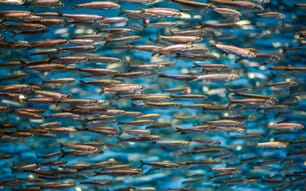The catch is likely to continue to increase and could accelerate as pressure on quota species increases.
However, Juliette Hatchman, a policy advisor with the Department of the Environment, Food and Rural Affairs said that the increase in catches could lead to exploitation of the stocks and over fishing.
"Whilst national statistics do not show significant declines in stocks, scientific evidence does indicate that stocks, in particular brown crabs, are at risk of being exploited beyond sustainable limits, if fishing effort continues to increase," she told the recent Shellfish Association of Great Britain conference in London.
Ms Hatchman said that because lobster and crabs are taken by the same gear, protection measures for both species should be taken together.
The present production levels have lead to the markets being flooded producing low prices and poor returns for fishermen and this has led to concerns about the economic viability of the industry.
She said that fishermen, rather than reducing the catches to increase prices have instead increased catches in a bid to increase income. This, however, have a knock on effect of threatening the sustainability of the species.
In the UK, a shellfish licensing system was introduced in 2004 in a bid to restrict the numbers entering the industry and while there are 3,000 licences at present issued, the authorities say that the industry is fishing well below capacity with many licences not being used.
Defra estimated that about 60 per cent of the licences for shellfish fishing are "dormant".
The industry together with the Inshore Fisheries and Conservation Authority has set out measures to conserve stocks of brown crab and lobster, but much of the stocks are outside the reach of these authorities.
Ms Hatchman said there is a need in the industry for national measures to be taken to conserve stocks, even though at present they are not thought to have been over exploited yet.
"Economists advise that experience has shown that the costs to the industry of introducing management measures early on can be expected to be substantially smaller than implementing corrective measures later on, which supports the argument for adopting precautionary measures at this stage," said Ms Hatchman.
"Government intervention is currently considered to be best placed reducing the potential for future growth in capacity of the shellfish sector to protect stocks."
The government is proposing to allocate individual vessels with user rights for a fixed period.
Ms Hatchman said this would provide the industry with greater responsibility for the management of their fisheries and the development of future opportunities.
It would also provide a means within the industry to take informed decisions on the security and viability of the business and there would be incentives to rationalise the fleet and its capacity to help provide a viable and sustainable industry.
She said it was hoped to see the management approach to providing a sustainable shellfish industry throughout the UK but to start it would be established in English waters.
The British government is also intending to hold talks with the Irish and French fishery bodies to establish cooperation around the UK coasts.
Ms Hatchman said the rights based management system would allow the industry and government to decrease landings in future of stock assessments deemed it necessary.
"The industry would be given more ownership of the fisheries they prosecute, able to determine what management measures they think are required to safeguard stocks in certain areas," she said.
The government is looking to start implementing the rights based management system in 2013.
"We aim to encourage a sense of long term responsibility for important shell fisheries within English waters, ;providing a greater certainty of rights for all those wishing to prosecute the fisheries to plan confidently for the future, make the most of the fishing opportunities they have, whilst safeguard stocks and optimise economic returns," said Ms Hatchman.
"Experience shows that this sort of management approach works best when those most impacted take ownership for it."
Ensuring Sustainability Of Crab, Lobster and Shellfish
Crab and lobster potting in many areas around the UK has risen considerably over the last five to 10 years, writes TheFishSite editor in chief Chris Harris.


